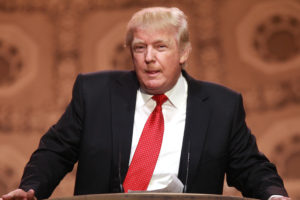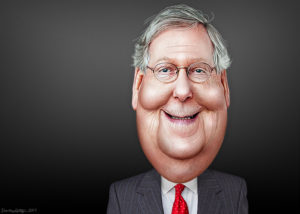Trump’s Penthouse Populism and the Republican Tax Plan Debacle


A year into the Trump administration, the Republican Party is on track to enact a major overhaul of the US economy with a tax bill that adds over $1.4 trillion to the national debt. When Trump ran for president, he won the votes of a disenfranchised working class using economic populist rhetoric. The political opening he capitalised on was in part left by the legacy of the financial crisis from a decade ago. With this bill, the ‘swamp’ Trump promised to drain will instead receive a Christmas present in the form of astronomical tax cuts and eliminations. Meanwhile, the plan will not meet the needs for Trump’s backbone of support. Rather, the working class will bear the brunt, paying for the costs with cuts to entitlement spending and eventual tax hikes.

Not much of Trump’s economic populist promises will remain after the Republicans succeed in enacting their nefarious plans to uproot the economy. Likewise, Republican bickering over fiscal conservatism during Obama’s term turned out to be a sham after they fast tracked the trillion dollar tax bill. Now, they will return to self-professed fiscal responsibility to keep the deficits (that they just increased) in check. This could happen by eliminating welfare provisions that poor families, the elderly and children rely on. Some provisions to pay for handouts to the rich are in the tax bill already. Most notably, the Senate snuck in a repeal of the individual mandate from the Affordable Care Act, which failed to pass the Senate in the ACA repeal earlier this year. Speaker of the House, Paul Ryan, displayed unapologetic hypocrisy when he stated that Medicare and Medicaid are the drivers of debt, while claiming that the tax cuts will pay for themselves. The Joint Committee on Taxation predicts that the GOP bill will add $1 trillion to the debt even when accounting for growth over the next ten years.
While Trump may not care much for the working and middle classes, he will certainly be keen to sign the bill that also gets rid of the estate tax (and benefits his family). Republicans will argue that the cuts to income taxes also apply to lower earners. However, whereas the Senate has made the business tax cuts permanent, those earning under $75,000 year will eventually get a tax hike to pay for the corporate cuts. Peter Hart, a Democratic pollster labeled the plan ‘penthouse populism’. Indeed, the bill does little to alleviate economic problems that the working class trusted Trump to fix. Instead, Nobel Prize winner Richard Thaler argues that the bill will increase income inequality and widen America’s wealth gap.
On the campaign trail Trump presented himself as a man of the people. He received the image of a populist, promising to give back jobs to the “forgotten men and women.” Trump painted a picture of a corrupt Washington, which he intended to rid of unsound policies that wasted money and jobs, and replace them with the America First doctrine. However, as President, Trump’s support of the Republican Tax plan damages his populist tag. When the GOP establishment drew up the Tax Cut and Jobs Act, it did so by making backroom deals and swiftly putting it up to a vote before it could be properly understood – or even read – by lawmakers and the public. This conniving strategy by the Republican leadership has ‘establishment’ written all over it, and is antithetical to a populist approach. What is more, the bill lacks popular support. Even among Republicans, polls suggest that on average only 46% are in favour of the plan. Among all voters it is one of the least popular policy initiatives in history. When it passes, it will be the first major piece of legislation under Trump’s presidency, and it removes any credibility to call him a populist. Sadly, it is unlikely that this will deter support from his backbone, who are unrelenting in backing him. In their eyes, Trump is a true populist, even though in reality, this bill exposes him as a fraud once again.
Edited by Benjamin Aloi
